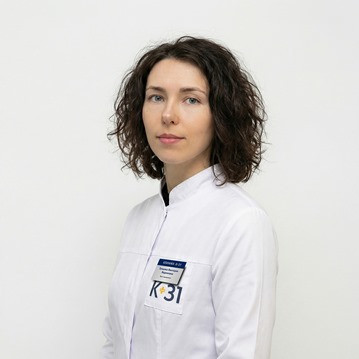Hormonal studies occupy a key place in the field of endocrinology. They help the doctor assess the condition and functioning of the endocrine glands. Deviations in hormonal balance often lead to serious diseases of the thyroid gland, pituitary gland, hypothalamus, pancreas and genital organs. That's why It is important to monitor hormone levels and undergo examination in certified laboratories, where an accurate medical report with a detailed interpretation of the results is provided.
Indications for diagnosis in women and men
The main indications for hormonal studies include:
- Symptoms of endocrine system disorders. With problems with the thyroid gland, diabetes mellitus and other dysfunctions, the patient is concerned about dry mouth, lack of energy, frequent urination, changes in body weight and other signs.
- Gynecological problems. Relevant for women who are faced with menstrual cycle instability, infertility or recurrent miscarriages.
- Complications during pregnancy. When planning or in the early stages of pregnancy, such an analysis is prescribed to monitor the level of certain hormones (estrogen, progesterone). This is important for determining the risk of developing possible complications.
- Obesity. In some cases, excess body weight may be associated with hormonal imbalances, especially in cases where traditional methods of weight correction are ineffective.
- Adaptation to stressful situations. Periods of increased stress and prolonged psycho-emotional stress often disrupt hormonal levels, causing the need for its correction.
A reason to test hormones in women may be acne, increased hair loss, or deterioration of nails. It is important to check hormone levels during sudden weight gain and decreased libido. Pain in the lower abdomen may indicate tumors of the uterus and ovaries, which are also associated with changes in hormone levels.
Although women most often experience hormonal imbalances, men are also at risk of developing diseases associated with changes in hormone levels.
The following signs may indicate hormonal imbalance in men:
- Infertility.
- Erection problems or low sex drive.
- Chronic prostatitis.
- Decreased bone density, which increases the risk of fractures.
If you have such symptoms, your doctor usually recommends getting tested for testosterone hormones. If liver cirrhosis or hormone-dependent testicular tumors are suspected, a man is referred for a blood test for estradiol.
A blood test for prolactin helps a doctor evaluate the functioning of the pituitary gland, check the course of metabolic processes, determine the cause of infertility, and identify endocrine disorders in a man. This hormone is involved in the synthesis of testosterone, affects metabolic processes and spermatogenesis. Changes in prolactin concentration can be associated with physical activity, stress, infectious diseases and taking anticonvulsants.
To determine hormonal balance, it is recommended to take hormone tests in specialized medical centers. If you need advice on sex hormone testing, please contact our clinic.
Hormonal profile: aspects of endocrine regulation
Hormones are substances secreted by specialized cells of the endocrine glands that coordinate and regulate various processes in the body. The stability of metabolic processes, the regulation of growth and development of the body, as well as the maintenance of reproductive function and adaptation to stressful situations depend on the correct functioning of hormones.
In the female body, the ovaries produce estrogens, gestagens and progesterone, which are involved in the regulation of the menstrual cycle, maintaining pregnancy and a number of other processes.
The pancreas is responsible for regulating blood sugar levels, producing insulin and glucagon.
The adrenal glands influence many systems in our body, including the cardiovascular system. They are responsible for hormones such as adrenaline and glucocorticoids.
Regulation of metabolism, growth and development of tissues is the task of the thyroid gland through hormones such as thyroxine and triiodothyronine.
The pituitary gland plays a key role in coordinating the work of the endocrine glands. It is involved in the processes of growth, sexual development and many others, releasing hormones such as prolactin and somatotropin.
The mineral balance in the body, in particular the exchange of calcium and phosphorus, is controlled by the parathyroid gland and its hormone - parathyrin.
What hormone tests are taken
Understanding the state of health often begins with a simple thing - with a test for blood hormones. Many patients ask the question: what hormone tests should a woman undergo in order to get a complete picture of the condition of her body? Let's look at key research that will help figure out what's going on in the body.
- Blood test for glucose. The human body uses glucose as a source of energy, but too much or too little of it indicates health problems. Insulin regulates glucose levels. If it is elevated, it may indicate diabetes, pancreatitis, or liver problems. A decrease in glucose may be a sign of pancreatic diseases or tumor processes.
- Blood test for alanine aminotransferase (ALT) and aspartate aminotransferase (AST). These enzymes play a key role in liver health. An increase in their levels may be a sign of liver or heart disease.
- Bilirubin. This is a pigment that is formed when red blood cells are destroyed. A general or direct test for bilirubin helps determine the functional state of the liver and gastrointestinal tract.
- Alkaline phosphatase. Used in the diagnosis of diseases of the kidneys, liver or biliary tract, bone lesions.
- Gamma-GT (gamma-glutamyl transpeptidase). This enzyme is found in large quantities in the liver, kidneys and pancreas. Its increase can signal various diseases of these organs.
- Amylase. This enzyme is actively involved in digestion, especially in the breakdown of carbohydrates. Its level changes with diseases of the pancreas or kidneys.
- Lipid profile. This comprehensive blood test for hormones shows the level of fats in the blood and can indicate the risk of developing atherosclerosis or other cardiovascular diseases.
- Study of C-peptide level. Despite the fact that this protein is normally present in the blood in minimal quantities, its level can increase during various inflammatory processes or tumors.
- Determination of insulin and glycated hemoglobin levels. These tests are also used to diagnose diabetes and evaluate the effectiveness of its treatment.
- Tyroid-stimulating hormone (TSH) test. A hormone that regulates the functioning of the thyroid gland. Its levels can change due to various diseases, including problems with the adrenal glands or tumors.
To monitor your overall health, it is recommended to take tests for thyroid hormones, cortisol, insulin and sex hormones (testosterone or estrogen), since they play an important role in a number of physiological processes.


















